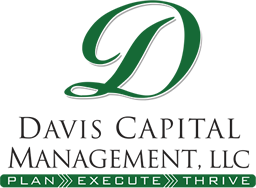
A budget is key to understanding and managing your finances. It can help you determine where your funds are going and if those allocations align with your short and long-term goals. If you’re new to budgeting or simply looking to improve your spending habits, these tips can help lay the foundation of solid money management.
1. Budget Variance Analysis
One tried and true method used in business accounting is called a Budget vs. Actual report or budget variance analysis. Since businesses can’t foresee exact sales numbers and expenses each month, they conduct a financial forecast of income and expenses. Then each month (or another specific time period) they compare the “actuals”, actual income and expenses, with their forecasted budget.
Individuals can do something similar by planning a budget based on projected earnings and expenses for the month. Next, document all income and expenses and payments as they occur. After 30 days, compare how your income and spending lined up with your initial budget. Was your budget realistic? Do you need to pull the reigns in on extra spending? Locate opportunities for improvement, identify any variables and document any progress you’ve made toward your financial goals.
2. Prioritizing Needs and Wants
The purpose of a budget is to map out and organize your finances to align them with your financial goals. This will require distinguishing between needs and wants and determining any nonessentials that may impede these goals. Essentials like housing, transportation and grocery costs should be accounted for first. Also, don’t forget to pay yourself. This means prioritizing savings before anything in the “wants” category.
One common formula is the 50/20/30 rule. This allocates 50% of your income to essentials, 20% to savings or debt and 30% to non-essential items or wants. You can adjust these numbers based on your current financial situation or if you’d like to be more aggressive with savings. The key is to commit to a specific percentage and stick with it.
3. Leave Wiggle Room
Life doesn’t always go according to plan. It can send us curveballs resulting in unexpected spending. That’s why setting aside a portion of funds for emergencies is vital to staying on track with your budget and savings goals. Whether it’s an impulse buy or family emergency, leaving some wiggle room can help cover costs and keep you on track without becoming discouraged.
4. Take Ownership of Your Automated Budgeting
Today’s technology can simplify budgeting by automatically paying your reoccurring expenses or subscription payments. If you’re going to put those payments on auto pilot, why not make automatic payments to savings as well? There are also apps that can analyze your spending habits or remind you that a bill is usually processed around that time. Monitoring these apps can provide insight and remind you of information you might have otherwise missed.
Like other financial planning methods, budgeting isn’t one-size-fits-all. There may be some trial and error until you determine what budgeting method works for you. Just stay the course until you find a method that fits your lifestyle and financial requirements.
Looking For A Financial Planner For Retirement Near Rochester Hills?
Take Control with a Financial Planner
Davis Capital Management can create a personal financial statement to assess your personal net worth and cash flow. This birdseye view of your finances can be extremely valuable when setting a budget and planning for the future. Having the this data from the beginning may help you avoid the common pitfalls and setbacks that often discourage people from staying on track.

